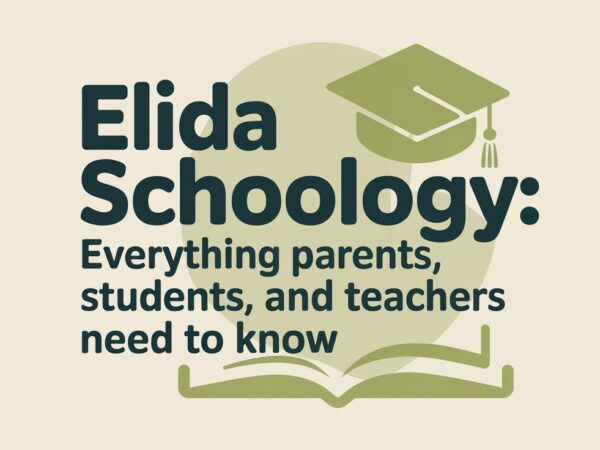The Correct Spelling is School Not School. Some Pe – Tymoff

Spelling errors have become increasingly prevalent in the fast-paced digital age, where texting and social media communication dominate. One phrase that has caught attention, humorously and educationally, is “The correct spelling is school not school. some pe – Tymoff.” This phrase highlights the importance of spelling accuracy, even in casual settings. While it might seem trivial, correctly spelling words like “school” is crucial for effective communication. This article explores why correct spelling matters, why misspellings like “scool” occur, and how we can avoid these common mistakes.
Why Correct Spelling Matters
Clarity and Understanding
Correct spelling is the foundation of clear communication. When words are spelled correctly, the intended message is conveyed without confusion. For instance, “school” is universally recognized and understood, while “scool” might cause a momentary pause or misunderstanding. In written communication, clarity is paramount. The correct arrangement of letters ensures that the reader can quickly and easily comprehend the message without needing clarification.
Misspellings can alter the meaning of a sentence or make it ambiguous. Consider the difference between “I went to school” and “I went to scool.” The former is clear and precise, which could lead to confusion or be dismissed as a typographical error. Such errors, especially in professional or academic settings, can undermine communication effectiveness and lead to misunderstandings.
Credibility and Professionalism
Spelling is often seen as a reflection of one’s education and attention to detail. Poor spelling can negatively impact how others perceive you in professional and academic environments. A well-written document with correct spelling demonstrates that the writer has put thought and effort into their work. It suggests they care about how their message is received and respect the reader enough to ensure their writing is polished and error-free.
On the other hand, frequent spelling errors can give the impression of carelessness or a lack of education, which can be detrimental in both personal and professional contexts. For example, a job application or a business proposal riddled with spelling mistakes will likely be taken less seriously than one well-crafted and error-free. Correct spelling isn’t just about following rules—it’s about building credibility and maintaining professionalism.
Consistency in Communication
Consistency is vital in effective communication. Standardized spelling ensures that everyone is on the same page, quite literally. Imagine a scenario where “school” is spelled differently by different people—some using “scool,” others “skool,” and still others “schol.” Such inconsistencies would lead to confusion and disrupt the flow of communication. Standardized spelling like “school” ensures that written communication is uniform and understandable across different contexts.
In an increasingly globalized world, where English is often the common language of communication, maintaining consistency in spelling is even more critical. It allows people from different backgrounds and regions to understand each other clearly and reduces the likelihood of misunderstandings. By adhering to standardized spelling, we contribute cohesive and effective communication.
Common Reasons for Misspelling “School”
Despite the importance of correct spelling, errors like spelling “school” as “scool” are common. Understanding the reasons behind these mistakes can help in addressing them effectively.
Phonetic Confusion
One of the main reasons for spelling errors is phonetic confusion. English is notorious for its inconsistent spelling rules, where the pronunciation of a word does not always align with its spelling. The word “school” is a prime example of this. The “ch” in “school” is pronounced as a “k,” which can be confusing for those who are learning the language or those who rely heavily on phonetic cues for spelling.
This phonetic discrepancy is particularly challenging for young learners and non-native speakers, who might spell the word as it sounds, leading to the common misspelling “scool.” To mitigate this, it’s essential to teach the correct spelling alongside the correct pronunciation, reinforcing the connection between the two.
Influence of Informal Communication
The rise of digital communication platforms like texting, social media, and instant messaging has also contributed to the prevalence of spelling errors. In these settings, speed often takes precedence over accuracy. People focus more on getting their message across quickly rather than ensuring every word is spelled correctly. This has led to a culture where typos and misspellings are common and sometimes even accepted.
However, this casual approach to spelling can spill over into more formal writing, where accuracy is still expected. The informal nature of digital communication can desensitize people to the importance of correct spelling, making it easier to overlook errors in more critical contexts. It’s essential to recognize the difference between informal and formal writing and to adjust our attention to spelling accordingly.
Autocorrect Missteps
Technology has made our lives easier, but it has also made us more reliant on tools like autocorrect and spell-check. While these tools are helpful, they are not infallible. Autocorrect can sometimes suggest the wrong word, leading to errors that go unnoticed if we are not paying close attention. For instance, typing “scool” might be automatically corrected to “school,” but the error may persist if autocorrect fails.
Moreover, the convenience of these tools has made many people less vigilant about learning the correct spellings of words themselves. Instead, they rely on technology to do the work for them, which can result in a decline in spelling proficiency over time. It’s essential to use these tools as aids rather than crutches and maintain a strong spelling foundation through regular practice and learning.
Historical Context of the Word “School”
To fully appreciate the importance of spelling “school” correctly, it’s helpful to understand the word’s historical context. The word “school” has been used for centuries, with its roots tracing back to the Latin word “schola,” which means a place of learning. The word entered the English language through Old and Middle English, evolving in meaning and spelling over time.
When it reached its modern form, “school” had become widely accepted as the standard spelling. This long history underscores why it’s crucial to spell the word correctly. “School” is not just a word; it’s a symbol of education, learning, and knowledge. When we misspell it, we undermine the word’s significance. It’s a reminder that some words carry more weight than others and deserve our attention and respect when we write them.
The cultural significance of the word “school” further emphasizes the need for accuracy in its spelling. Schools are institutions that shape our future generations, and the word itself embodies the ideals of education and intellectual growth. Ensuring that we spell “school” correctly honors the importance of these institutions and the values they represent.
Tips to Avoid Common Spelling Mistakes
Given the challenges of English spelling and the influence of digital communication, how can we avoid common mistakes like misspelling “school”? Here are some practical tips:
Break Down the Word
One effective way to avoid spelling errors is to break the word down into smaller components. For example, dividing “school” into its syllables—”s-ch-ool”—can help reinforce the correct spelling. This method benefits visual learners who can benefit from seeing the word in parts rather than as a whole.
Breaking down words into their phonetic components can also aid in understanding the relationship between spelling and pronunciation. By focusing on each part of the word, you can better remember the correct order of letters and avoid common misspellings.
Mnemonic Devices
Mnemonic devices are memory aids that can help you remember tricky spellings. For example, you could use a phrase like “School is cool” to reinforce the double “o” in “school.” This simple trick can make it easier to recall the correct spelling when you need it.
Mnemonics create a mental association with the word, making it easier to retrieve from memory when writing. This technique benefits words that are commonly misspelled or do not follow standard phonetic rules.
Practice and Repetition
Regular practice is essential for mastering spelling. Writing the word “school” multiple times, using it in sentences, or incorporating it into your daily writing can help reinforce the correct spelling in your mind. Repetition is critical to moving the correct spelling from short-term to long-term memory.
Engaging in writing exercises that focus on commonly misspelled words can also improve overall spelling proficiency. By consciously using the word “school” in different contexts, you can solidify its correct spelling and reduce the likelihood of errors.
Use of Spell-Check Tools
While it’s important not to become too dependent on technology, tools, like spell-check and autocorrect, can still be valuable aids in avoiding spelling mistakes. Make it a habit to use these tools, but always double-check their suggestions. Additionally, consider using more advanced tools like Grammarly, which corrects spelling and offers suggestions for improving grammar and style.
Using spell-check tools can catch errors that might slip through in the initial writing process. However, it’s crucial to review these suggestions critically and understand why a particular correction was made to avoid repeating the same mistake.
The Role of Humor in Learning
The phrase “The correct spelling is school not school. some pe – Tymoff” is more than just a reminder to spell correctly; it also reflects how humor can play a role in learning. Humor has long been recognized as an effective educational tool because it makes learning more engaging and memorable. When we encounter a humorous phrase or joke about spelling, it creates a mental “hook” that makes the correct spelling easier to remember.
Incorporating humor into learning alleviates the stress associated with mastering spelling and grammar and fosters a sense of community among learners. Sharing a laugh over a common mistake reminds us that we’re not alone in our struggles. This shared experience can make learning more enjoyable and less intimidating, transforming what could be a frustrating challenge into an opportunity for connection and growth.
Humor as a Memory Aid
Humor can serve as a powerful mnemonic device. When something is funny, it’s more likely to stick in our memory. The phrase “The correct spelling is school not school. some pe – Tymoff” uses humor to emphasize the correct spelling of a commonly misspelled word. This lighthearted approach makes the lesson memorable, ensuring that the proper spelling is more likely to be recalled in the future.
This method is particularly effective for visual learners who benefit from associating a word with an image or a funny phrase. The humor acts as a mental “hook” that makes the correct spelling easier to retrieve when needed. Turning a potential mistake into a joke makes the learning process less stressful and more engaging, which can be especially helpful for younger learners or those struggling with spelling.
Building a Supportive Learning Environment
Humor also helps to create a supportive and inclusive learning environment. When educators and students alike can laugh at common mistakes, it removes the stigma of failure and encourages a growth mindset. Instead of viewing errors as something to be ashamed of, they are seen as a natural part of the learning process. This shift in perspective can be incredibly empowering, helping students to persevere even when they find certain aspects of spelling challenging.
In a classroom or group setting, sharing humorous anecdotes about spelling mistakes can build camaraderie among students. It fosters a sense of belonging and mutual understanding, as everyone is reminded that they are not alone in their struggles. This communal aspect of learning through humor can significantly enhance the educational experience, making it more effective and enjoyable.
Conclusion
In conclusion, the phrase “The correct spelling is school not school. some pe – Tymoff” is more than just a correction; it’s a reminder of the importance of accuracy in communication and the role that humor can play in education. Correct spelling ensures clarity, enhances credibility, and reflects our commitment to effective communication. By understanding the common causes of spelling errors and taking proactive steps to avoid them, we can improve our writing skills and reduce the likelihood of mistakes.
Whether through mnemonic devices, regular practice, or the strategic use of humor, we can enhance our spelling abilities in many ways. And as the phrase suggests, it’s always better to take a moment to spell “school” correctly—because, after all, school is excellent. By embracing these strategies, we can all become better communicators and more confident writers.
So the next time you’re tempted to type “scool,” remember the lessons from “The correct spelling is school not school. some pe – Tymoff.” A little attention to detail goes a long way in ensuring that our writing is clear and professional. Let’s all strive to make our written communication as effective as possible, one correctly spelled word at a time.
Do Read: UTI Blackboard Login: Mastering Online Learning Access







